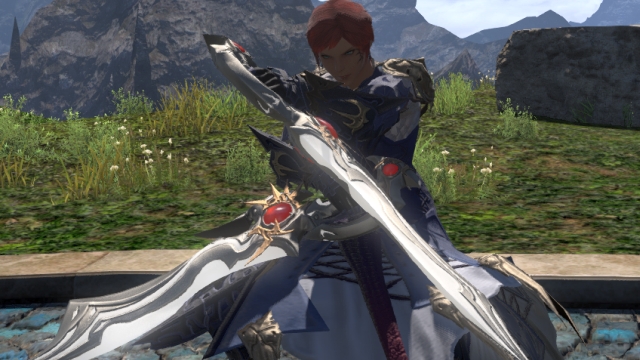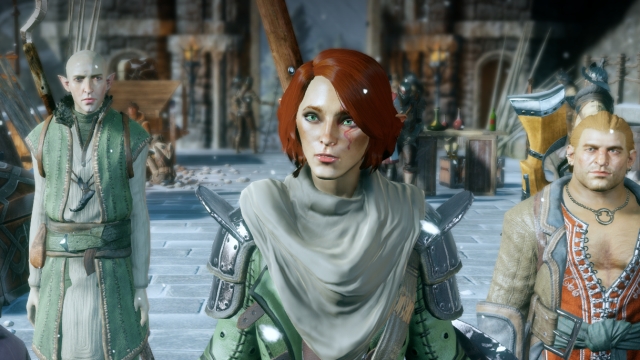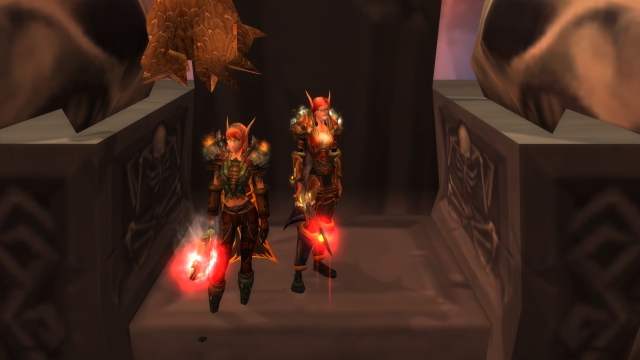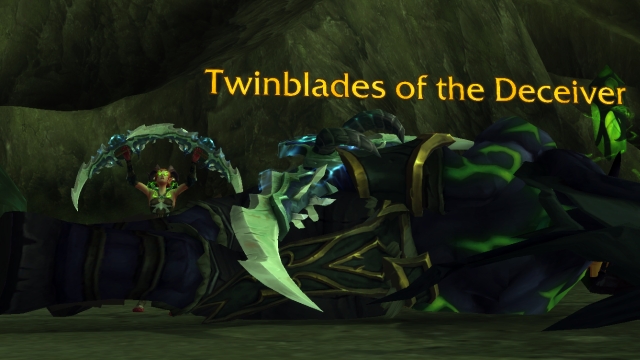If you were a kid and you had siblings, you are already well-equipped to deal with loot drama in MMOs. That’s not entirely a good thing, though; it’s an endless parade of people being certain that they deserve the new shiny thing when there is, in fact, only one new shiny thing to be had. And no matter what method you use, there’s still only going to be one shiny thing, so if X is the number of players who want the thing, X – 1 is the number of players who are going to be at least moderately unhappy with the outcome of its distribution.
Gamer Launch, thankfully, has a number of built-in tools to help make sure that your choice of loot system is handled fairly and effectively. That’s good. But it doesn’t necessarily tell you which system you should be using. So let’s talk a bit about how the distribution problem comes up and what systems you can consider.

Understanding the problem
Loot, when it exists, drops in finite qualities. I know, your mind is blown. But it’s not just a matter of the items that drop, sometimes.
Let’s look at World of Warcraft for a moment. Obviously, the weekly normal raid run that your guild does is going to involve loot. But there’s also loot in terms of shared guild resources, rare items that are being harvested, and so forth. There’s loot to be considered when it comes to things like enchantments. There’s loot in the form of rare gems and the like. All of these things, together, make up the loot problem.
How so? Well, let’s say Shauna and Michelle are both playing characters who need a two-handed sword. Shauna gets the sword, so she’s happy. But Shauna also then has a reason to enchant that sword. There are also crafted armor bits that Shauna might want, stuff that the guild can only supply in fixed quantities. If Shauna gets all of the other enhancements she needs on the guild dime, but Michelle doesn’t, the loot problem is compounded. But there’s also no assurance that Michelle even can get what she needs without that sword in the first place.
In short, it’s about fairness. Yes, having the drops that you want is a big part of it, but it’s not the only part of it. So you need to consider both what you see dropping and what else falls under the header of loot.
There are, fundamentally, three different systems to try and make things fair within the framework of inherent randomness.

The Luck system
The Luck system is basically what games have in by default. If you need an item, you roll against everyone else who needs it. High roll gets the item. I’ve had guilds that use slight variants of the system, like awarding it to whoever rolls lowest, but it’s still basically down to the luck of the people who say they want the item.
Advantages: The biggest advantage to this system is that it is inherently fair; there’s no question of who likes who more, it’s just a matter of getting a random number. It also can encourage players to diversify a bit more, as each thing that one player wants which no one else can use is another definite bit of loot.
Disadvantages: Well, there’s the simple and obvious fact that bad luck can screw you over profoundly, isn’t there? It’s quite possible for someone else who needs a minor upgrade to roll on something that would be a major upgrade for you, and there’s not much you can do but grin and bear it. It also makes everyone more subject to the whims of chance.
Best usage: This is a system that works really well with two extreme sorts of groups. The first option is a group of total strangers who neither know nor trust one another, where the fairness of the system is pretty good. The other is when you have a mature group who is used to working together and trusts one another, because they can take losses in stride and see “the item that I didn’t get” as “the item that helps the group as a whole.”

The Modified Luck system
Modified Luck has a lot of different variants, but the core is still the luck system, adjusted by someone overseeing the system. Two of the more common versions I’ve seen are roll escalation (each time you roll and lose, your roll is treated as “bigger” until you win) or a tit-for-tat system (if you roll on something and win, that’s your only piece unless no one else wants something). The core is still a matter of luck, but the idea is that bad luck is adjusted by raid management and leaders.
Advantages: When used well, this system combines the fairness of luck with the control of someone behind the helm. It doesn’t mean that you’re going to get everything you want, but it does mean that you’re more likely to get something as a consolation prize. It also means that everyone is more likely to save their chances for things they really need rather than something that might be less important, as no one wants to waste their one roll on a sidegrade.
Disadvantages: It’s possible for me to be raiding in Star Wars: The Old Republic without seeing a single thing drop for my specialization while seven or eight things drop for another specialization, and vice versa. Sure, I might be more likely to win the next thing that does drop for me, but if one thing drops in the beginning and then every other drop is useless for me? I’m going to be kind of pissed. This also introduces the threat of politics, since the person in control of distribution can make calls for the good of the group that don’t necessarily align with my own interests.
Best usage: This sort of system works well when you have a group that doesn’t totally trust one another but is, at least, somewhat reliable. It’s also good if you have a group dealing with farmed or lower-level content, since there are going to be lots of things which higher-level players can look at with a shrug and a “nah, don’t need it.”

The DKP system
Ironically, a lot of games have a tacit version of DKP in the form of supplemental currency that drops from bosses. It’s the same principle – earn points for taking part in kills, spend points to pick up items. Gamer Launch has excellent tools for tracking things like DKP totals, to boot, so you know exactly how many points you have; many guilds will use variants such as blind-bidding on items when they drop or offering escalating costs for subsequent items on the same run.
Advantages: There’s no ambiguity with these systems, and there’s also no room for politics to intrude too heavily. If you’re a new player and you haven’t contributed to the guild, you don’t get a whole bunch of big items; if you’re an old hand and take part in farm content, you can pick up anything you want when it drops. That’s balanced.
Disadvantages: So let’s say you’re a new player, and you need the same item as a veteran does. Better give up on getting it the first time it drops, and if it’s rare enough, give up on seeing it the next several times, too. It’s far easier for new players to be effectively locked out of loot for some time. In addition, there’s the complex work needed to make sure that the system is fair and tracked accurately.
Best usage: This works very well in a mercenary group. You aren’t necessarily friends or companions, you’re all getting together to clear something and you’re all capable of clearing content. That’s all you’re meant to be to one another, and this sort of system fosters exactly that.
As you can see, there’s no system that universally works for everyone. It’s even possible that you have a family-style guild that’s been using a DKP variant for ages without a problem. But figuring out which general approach will work best for your type is a major step forward in making sure that when item conflicts come up, you at least have a plan and a system.







Published: Aug 17, 2016 10:35 am